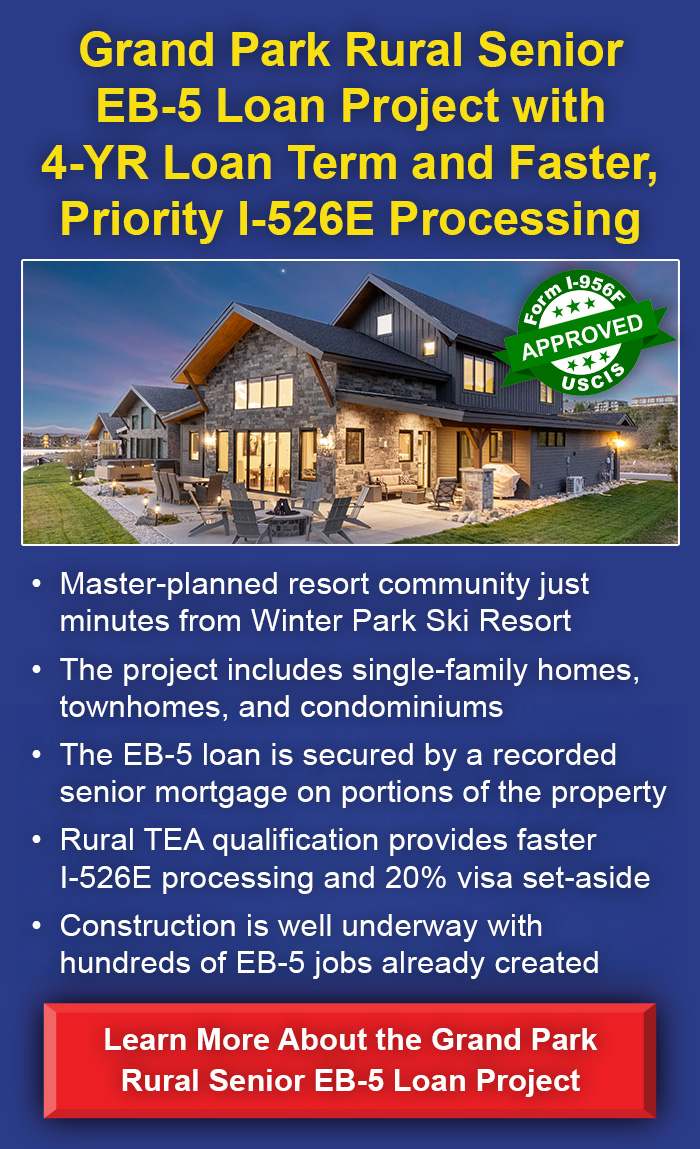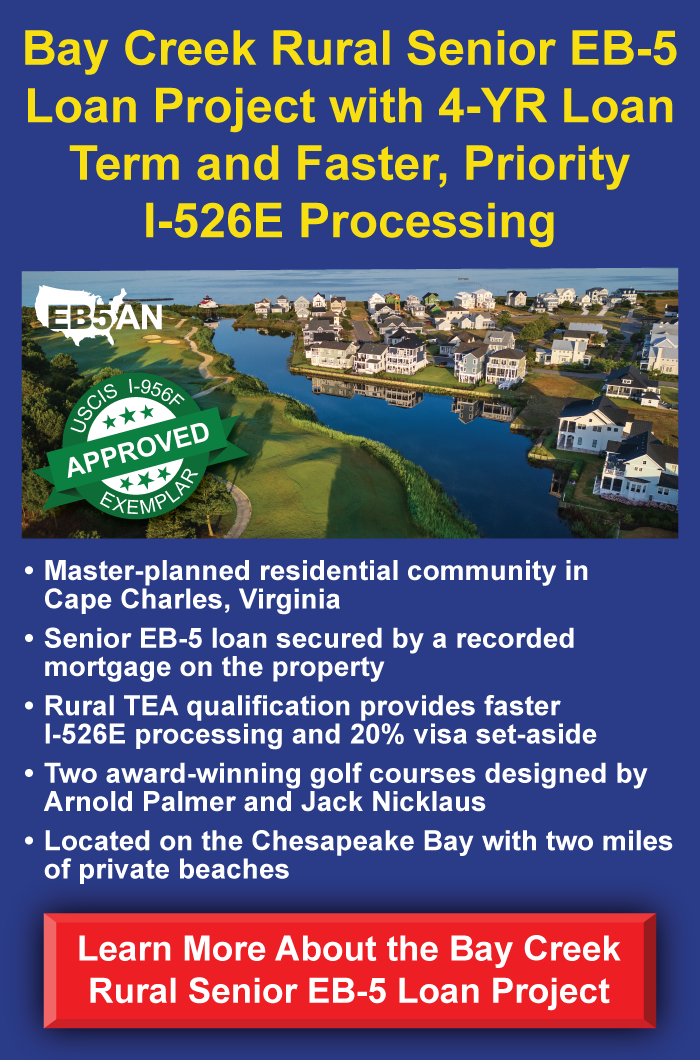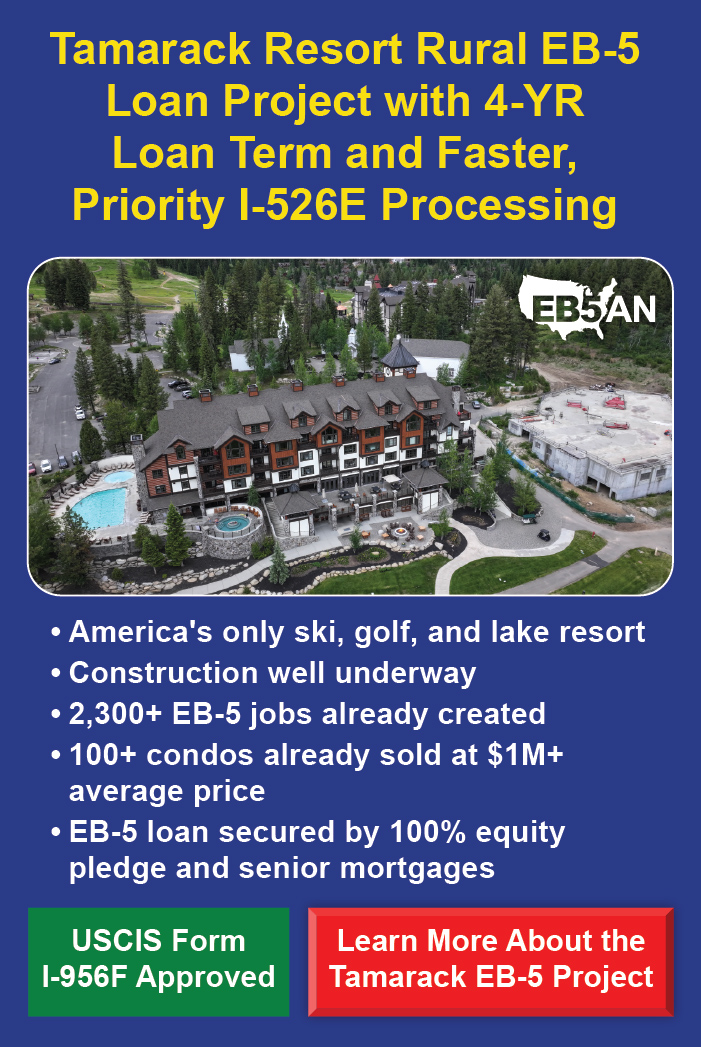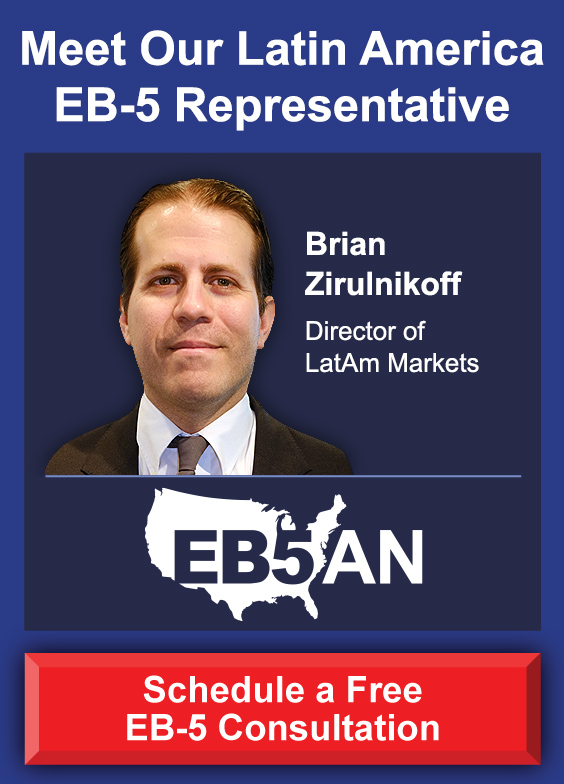
EB-5 investors can invest in a regional center-sponsored project or directly in a new commercial enterprise.
Most investors prefer regional center sponsorship because it offers an easier and faster route to obtaining an EB-5 visa and U.S. permanent residency. The regional center pathway also tends to be less costly, as most sponsored projects are in targeted employment areas, qualifying for a lower investment threshold.
Investing through regional centers also makes meeting the job creation requirement easier. With direct investments, investors must create at least ten full-time jobs for qualified U.S. workers and sustain them for at least two years. However, regional center investments allow investors to also use indirect and induced job creation to meet this requirement.
While investing through a regional center is a more accessible pathway to obtaining your EB-5 visa, there is no guarantee that USCIS will approve your I-526E petition. Your petition may be rejected if the regional center or project fails to meet USCIS conditions.
This is why it’s essential to carry out due diligence before choosing a regional center. This article provides a practical guide to conducting regional center due diligence.
Regional Center Due Diligence Checklist
- USCIS Compliance
- History and Experience
- Track Record
- Management Team
- Project Selection Process and Project Viability
- Financial Strength
- Communication and Transparency
Work With EB5AN for Financial and Immigration Success
Regional Center Due Diligence Checklist

Conducting regional center due diligence helps investors achieve immigration success and avoid losing money in an EB-5 investment. The checklist below serves as a guide for regional center due diligence.
USCIS Compliance
The United States Citizenship and Immigration Services (USCIS) designates regional centers. As such, a regional center must comply with all USCIS rules and regulations to obtain a designation and remain operational.
In carrying out due diligence, you must check the compliance of the regional center with USCIS policies. Confirm that they have an active designation. The regional center should be able to provide investors with their compliance history. Confirm they have maintained their designation by filing their annual certification forms.
Only choose regional centers with a history of full compliance. Be wary of those that have been cited for non-compliance in the past.
History and Experience
When choosing an EB-5 regional center, consider the experience level of each prospective one you’re considering. Check when each regional center was founded and how long they’ve been operating as an EB-5 project sponsor. You should also check how many projects they have completed since their designation.
The longer a regional center has been active in the EB-5 field, the more familiar it’ll be with the nuances of EB-5 petitions, project selection, and USCIS regulations. Their key personnel will likely be more experienced with the EB-5 processes and can help ensure a smooth application process.
Track Record

An investor primarily applies for an EB-5 visa to obtain U.S. permanent residency. So, every investor wants some type of guarantee that their investment in a regional center-sponsored project will lead to obtaining their Green Card. However, this is not always the case.
To ensure the success of their immigrant investor petition, investors must examine the track record of each prospective regional center. Research their project success rates, investor I-526E and I-829 petition approval rates, and investor repayments.
Given the potentially lengthy processing times of EB-5 petitions, newer regional centers may not have a long history to determine approval rates. Investors should look out for past I-526E and I-829 petition denials in this case. The presence of investor petition denials often indicates that the regional center breached USCIS guidelines.
Management Team

Like every other business enterprise, the success of a regional center relies on the expertise of its management team. Many regional center owners do not have a professional background in international finance and investments. This can affect the successful operation of their regional centers and sponsored projects.
Investigate the professional background of each prospective regional center’s management team. Look for those with relevant experience in business finance, immigration law, and real estate, as well as those who have worked on significant business transactions in the U.S. and abroad.
Investors should also look into the management’s integrity track record. Check for bankruptcies, past lawsuits, and regulatory issues. Analyze the profit-sharing agreement between the regional center and project developers. The presence of excessive compensation can indicate irregularities that could affect your investment.
Project Selection Process and Project Viability
If a regional center-sponsored project fails, an investor may lose their money and chances of becoming a U.S. permanent resident. That’s why, as part of due diligence, investors should talk to the prospective regional center about a customized project selection process and successful completion rates.
Find out if the regional center conducts independent due diligence on its projects. Examine their business plan and economic analysis to determine the project’s viability. Analyze each regional center’s investment strategy and determine if it aligns with your investment goals and risk tolerance.
Look out for regional centers that provide low-risk projects. That is, projects where the EB-5 investor does not bear the most risk. Projects already under construction and presold are generally at lower risk and more viable than those still in the planning stages.
Financial Strength

Investigating the financial strengths of a regional center is a critical component of due diligence. USCIS mandates that regional centers submit annual financial reports to their investors. You can use these reports to analyze the financial strength of the regional center.
Review each regional center’s audited financial statements. Assess their debts, assets, liabilities, and cash flow. Also, check their primary source of funding for sponsored projects. How much of the capital comes from EB-5 investments? How much comes from bank loans and developer equity?
Projects in which EB-5 investments make up a smaller percentage of the capital are often safer than EB-5 investment-reliant projects. The latter might fail if there are insufficient EB-5 investors.
Investors should also check the escrow agreement to understand how the investment funds will be managed and disbursed into the project.
Communication and Transparency
Communication and transparency are vital considerations when choosing a regional center. Investors should assess the regularity and transparency of each prospective regional center’s communications with investors. How fast do they respond to investors’ inquiries? And do they handle concerns professionally?
A good regional center should provide regular project progress and disclose critical financial transactions to its investors. Check their websites for testimonials from past investors. If possible, directly contact past investors to learn about their experiences with the regional centers.
Work With EB5AN for Financial and Immigration Success

Conducting regional center due diligence is essential for a successful EB-5 process. Choosing a regional center and project to invest in does not have to be overwhelming. You can make a well-informed decision by doing some thorough research.
An industry leader, EB5AN has helped over 2,300 families from 60 countries relocate to the United States as lawful permanent residents. Our expert team has more than a decade of experience and offers clients first-rate, low-risk EB-5 regional center projects with a 100% USCIS project approval rate to date.
If you need more information about conducting regional center due diligence or want to know more about our EB-5 regional center projects, please book a one-on-one call with our EB-5 team.












